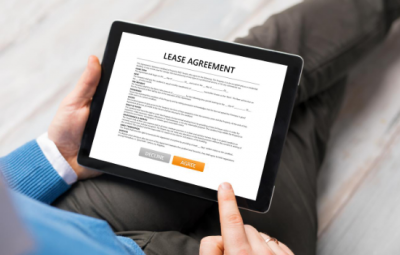Lease Options: When Does the IRS Consider it a Sale?
Originally published on August 13, 2020
Updated on November 20th, 2024

Whether you rent or own commercial real estate, lease options are a common clause in most commercial leases. The potential tax ramifications of lease options vary depending on the terms and conditions of the agreement. Knowing the possible tax consequences of commercial lease options can help you avoid unwelcome surprises come April.
What is a lease option?
A lease option allows renters the opportunity to purchase the building at the end of the lease. If the tenant exercises the purchase option, are they purchasing the building at that point? Or have they participated in an installment sale by making the previous lease payments?
To determine how the IRS will treat a lease option, the factors around the transaction must be analyzed. While there’s no bright-line test to differentiate between a lease and a sale, there are ways to evaluate your particular arrangement.
Is it a lease option or an installment sale?
Below are several factors the IRS examines to determine the proper tax consequences of a lease option agreement.
Is there a high probability at the time of signing the lease that the tenant will move forward with the purchase of the building? For example, are lease payments well above fair market value for a similar lease? This is a strong indication that the tenant was willing to acquire equity in the property at an early stage (and therefore intended to acquire the property all along).
You should also consider the sum of the lease payments and option clause together. If they total close to the fair market value of the entire building, the IRS will likely classify the transaction as an installment sale.
Is the option price a bargain price? Another indicator of a possible sale is the property’s selling price (the amount to complete the purchase). If it’s considered a bargain price in comparison to the fair market value of the property, the transaction will likely be considered an installment sale as the tenant is “economically compelled” to buy the property at the end of the lease.
What are the intentions of the parties? The IRS will look at both parties’ intentions when the lease agreement was signed. When a tenant believes in good faith that the terms and lease payments reflect a fair market rental value, a subsequent exercise of the purchase option will probably not be deemed an installment sale.
Is the tenant required to make improvements to the property? A tenant generally won’t agree to such a clause if they’re planning to leave at the end of the lease. Improvements increase the tenant’s investment in the property; such investments are recouped only if the tenant exercises the purchase option.
How does the difference affect my tax picture?
The biggest tax issue with lease options is the timing of the transfer of ownership. If the IRS determines that the transfer was a lease option, the ownership transfer takes place when the purchase option is exercised. The payments prior to the purchase remain rent expense to the buyer (tenant) and rental income to the seller (landlord).
However, classification as an installment sale means the IRS will treat the transaction as though the tenant took ownership as soon as the original lease agreement was signed. This creates a very different tax picture for both buyer and seller:
- The buyer in this instance will treat the payments prior to the exercise of the purchase option as loan payments. Depreciation and interest expense on the loan payments will be tax deductible expenses for the buyer.
- The seller will treat those same payments as part of the selling price and record the sale in the year into which the original agreement was entered. The seller will no longer recognize deprecation or other operating expenses as tax deductions.
As you can imagine, it can be surprising to learn you’ve “owned” a building for longer than you thought. The significantly different tax implications may mean you need to amend prior income tax returns.
When you’re purchasing or selling property through a lease option, don’t underestimate the tax implications involved. Talk to an experienced real estate accountant to avoid unnecessary surprises.
All content provided in this article is for informational purposes only. Matters discussed in this article are subject to change. For up-to-date information on this subject please contact a James Moore professional. James Moore will not be held responsible for any claim, loss, damage or inconvenience caused as a result of any information within these pages or any information accessed through this site.
Other Posts You Might Like

